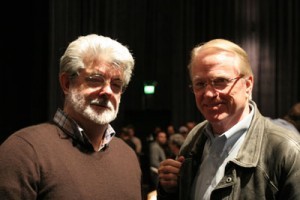Kevin Lowry's Blog, page 9
March 17, 2012
Should Only Millionaires Be Parents?
 A friend of mine and his wife were expecting their sixth child. A young couple had come to visit them from out of town, and were amazed at my friend's willingness to have yet another child despite modest means and a small home.
A friend of mine and his wife were expecting their sixth child. A young couple had come to visit them from out of town, and were amazed at my friend's willingness to have yet another child despite modest means and a small home.
The husband told my friend – with an earnest look on his face – that they couldn't even imagine having a child until they had at least a million dollars in the bank.
When my friend and I discussed this comment later, we shared a sense of astonishment that this intelligent, successful couple were so, well… scared. In stark contrast, the faith boldly proclaims "be not afraid" time and time again, and while the Church provides thoroughly reasonable teaching on the responsibilities of parents, there is no mention of parenthood as the exclusive domain of millionaires.
As the culture continues to drift away from basic tenets of faith, there is perhaps a "moment of grace" that allows for people of goodwill to recognize the truth – and beauty – of the Church's timeless teachings. Take the matter of contraception, for example. Much in the news these days, it's an opportunity to discover, or rediscover, why it may not be the greatest thing since sliced bread.
Many people have done a great job dedicating their careers to communicating various aspects of sexual morality, of course – including Dr. Janet Smith, Pam Stenzel, and Christopher West for starters. If you do nothing else, consider listening to Contraception: Why Not by Dr. Smith (the MP3 download is less than a buck), or watch Pam Stenzel's Sex Still Has a Price Tag youtube video.
I'm sure glad my wife and I didn't wait to get that million bucks in the bank before we began our family – none of our eight kids would exist! So for other prospective parents out there, be not afraid. Consider instead the following saying, and unfortunately I don't recall who said this:
"Children are not that which makes a rich man poor, but a poor man rich."
Amen!
March 1, 2012
Should Catholics Evangelize at Work?
 "My friend, I have a challenge for you: it's time you took your faith seriously."
"My friend, I have a challenge for you: it's time you took your faith seriously."
So ended a conversation with Tim, an evangelical co-worker, many years ago. His parting comment rang in my ears for a long time afterward. Tim meant well, but what really concerned him was my rumored interest in the Catholic Church.
Unfortunately (for Tim at least), I had passed the point of no return. It had taken two separate stints at Franciscan University of Steubenville, and close to 10 years of grappling with questions of religion. But then came the miraculous tipping point: A new acquaintance named Scott Hahn gave me a rosary. And I prayed it.
Within three weeks, I wanted nothing more than to become Catholic. Tim's worst fears were realized. My wife, Kathi, and I entered the Church that Easter. In a sense, Tim's evangelization efforts had helped — after all, I did precisely what he suggested.
Come into the Light
Have you ever been the object of evangelization at work by a boss, colleague, customer or someone else with whom you work? Perhaps someone who takes his or her beliefs very seriously, and who is intent on helping you see "the light"?
I sure have. Thankfully, like my experience above, these situations can be used by God to help us draw closer to Him.
Today's workplaces contain people from all walks of life. Our non-Catholic colleagues sometimes have a less than favorable view of the Church and consider us spiritually imperiled. They may desire to evangelize us — and this desire should be mutual.
As co-workers, we have an obligation to follow legitimate workplace policies, work hard and treat others in the workplace with dignity and respect. As Catholics, we are called to strive for holiness and maintain the integrity of our beliefs. So how do we fulfill these obligations when it comes to evangelization at work?
We need to act like good Catholics.
Attitude of Gratitude
Our attitude toward those who evangelize us is critical, and gratitude is an instrument of tremendous power, straight from the Holy Spirit. Now hold on, you might say, I'm supposed to be grateful for someone who thinks, for example, that Catholics aren't even Christian, and that we're all going straight to hell?
Yes, absolutely!
Here's why: If your co-worker has taken the time to evangelize you, what are they really doing? First and foremost, they are seeing your soul — the core of your being — as valuable. They are attempting to give you the most precious gift they possess. It's as if they knew where to find buried treasure, and then they tell you, desiring that you be wealthy. It's a huge compliment.
Now, consider the impact of your response on your co-worker. If you respond with gratitude, appreciating the value they place on you and the importance of the gift they are attempting to give, this will serve to deepen your relationship. You have just demonstrated respect for them.
Conversely, if you roll your eyes and are condescending or exasperated in your response, what would that say to your co-worker? This would weaken your relationship, as you have just demonstrated contempt toward this precious gift they have presented.
Even if you are turned off by a persistent or bothersome individual, pray for the grace to be grateful toward him. If he knows you'll listen and treat him with respect, he might ease up a tad. It's a great opportunity to grow in charity, not to mention knowledge of our faith, as we are confronted with various misunderstandings.
Let It Be a Challenge
I once had a client who was furious with my employer. The client was insulting toward the company and a couple of my co-workers. Rather than giving in to emotion and making matters worse, "Nancy," a colleague of mine, made it her mission to take responsibility and remedy the situation.
Over a period of several weeks, Nancy got the situation under control. Yet the real tipping point was a personal note she sent to the client, apologizing and asking for forgiveness on behalf of the organization. Over time, the client not only forgave us, she became a great friend of Nancy's — and loyal client of the organization.
The same can be true of those who attempt to evangelize us.
There are those who may actively oppose the Church — we need to be good ambassadors anyway. There are those who may insult us — we need to honor and value them anyway. There are those who may persecute us — we need to be gracious toward them anyway. It's the Catholic thing to do.
Recall Jesus on the cross, imploring the Father to forgive those who crucified Him. Recall Pope John Paul II, forgiving his would-be assassin. Heroic virtue is always commendable, even to those with whom we disagree. It's the ultimate witness.
Sowing Seeds
Thankfully, we generally don't deal with problems of this magnitude in our own workplaces. How do we as Catholics evangelize in our more mundane daily work?
There are really two elements involved. Our part is sowing seeds. The Holy Spirit's part is reaching into hearts, causing those seeds to grow. One of our greatest challenges is to avoid overreaching, and attempting to force conversion on others. Recall Jesus in John 6 honoring the free will of others by allowing them to walk away.
Many deeply committed Catholics express a desire to evangelize more effectively at work. They are fired up about the Faith, and they want to share it, but have trouble doing so. It's almost like stage fright. The problem is, they're almost always talking about talking. But is that what really brings people to Christ and His Church?
I heard of a study a while back that claimed that only around 7 percent of interpersonal communication consists of actual spoken words. The rest is nonverbal. This may be a useful rule of thumb for evangelization in the workplace, too. Rather than focusing on telling people all about Jesus and the Church (though this is important), we need to pay much more attention to behaving like good Catholics.
Thankfully, the workplace is full of opportunities to behave in ways that should come naturally to us as Catholics, but might surprise our co-workers. What if we:
• Speak positively about our spouse.
• Honor legitimate workplace authority.
• Sanctify our work, doing our absolute best every day.
• Willingly accept hardship for the benefit of others.
• Forgive co-workers who have offended us.
• Consistently do good, even with no one watching.
• Refuse to participate in "office politics" or gossip.
Secular workplaces are often the front lines of evangelization, so these types of actions don't tell others about Christ, they demonstrate Christ within us. What could be more authentic? Note that these actions make us better workers and Catholics.
Just like a good salesperson learns everything possible about his customer, we need to personalize our approach with co-workers.
People are not merely commodities! By listening, valuing others and appreciating their unique gifts, we manifest the love of Christ and reflect it toward our co-workers.
Many workplaces frown on "proselytizing" colleagues, and I don't know a single person who has converted through such an approach anyway. But it's always legitimate to answer questions honestly. For example, "How was your weekend?" can invite an enthusiastic response about your nephew's first Communion. The key is that such a response should be honest and joyful, never manipulative.
Keep in mind the power of friendship. Particularly during hard times, people are often more open to God's stirrings in their hearts. Use these opportunities to be gracious, supportive and loving. If your co-worker asks why you're like this, be ready to tell her how your faith has changed you. When you have built a good relationship based on mutual respect, your story will resonate.
Note: The above article originally appeared in the March/April 2012 edition of The Catholic Answer magazine, published by Our Sunday Visitor. Please consider subscribing, and purchasing a copy of Kevin's book Faith at Work: Finding Purpose Beyond the Paycheck. Thanks!
February 19, 2012
Words of Encouragement
This is the first thing I heard when I picked up the phone the other day. It was a college friend of mine, Chip, using a line that has been a running joke with us for many years. As it happened, I had experienced a challenging day when he called, and our conversation was a much-needed source of encouragement. Despite the difficulties I had faced that day, it was good to hear from Chip, who likes me despite my countless mistakes and faults.
So what are the ultimate words of encouragement? Perhaps it's the wrong question; maybe we should focus on the who rather than the what.
In Matthew chapter 11, Jesus says, "Come to me, all you who labor and are burdened, and I will give you rest. Take my yoke upon you and learn from me, for I am meek and humble of heart; and you will find rest for your selves. For my yoke is easy, and my burden light."
While Jesus was speaking here to those burdened by the teachings of the scribes and Pharisees, the encouragement He offers also rings true in our lives today. We all struggle in different areas of life, although many of our burdens are internal – and can't be seen by others.
Isn't this an opportunity?
Life dishes out its share of challenges. Our burdens, caused by sin, are lighter when we help one another along. In a human sense, our words of encouragement to others can be used by the Holy Spirit as a healing balm.
At another level, Jesus Himself, The Word Incarnate, is the ultimate encouragement. That's why I never tire of receiving our Lord in the Eucharist. Think of it as divine encouragement.
Let's resolve to offer some words of encouragement to someone today.
I'd like to encourage my non-Catholic friends to investigate the Eucharist using faithful Catholic sources. I've heard the Eucharist described as the key to Christian unity, which is more important than ever. It's worth checking out. Here's a good starting point.
For my former Catholic friends, I'd like to encourage you to consider returning home – you're just one good confession away. It's the most precious gift I've received, and I'd like you to have it once again for yourself.
By the way, Chip – I like you too!
February 5, 2012
How Are Things At Work?
I've asked this question of friends countless times, usually with a sympathetic grin. It's a question that acknowledges the fact that work is fraught with difficulties. Perhaps an ongoing disagreement with the boss or a coworker. Insufficient hours in the workday. Fear of being downsized. The tough part about work often isn't the work itself.
We've all been there. Anxiety about work runs hot in today's hyper-productive culture, and we feel it acutely, at a visceral level. At the same time, our faith tells us there's something more. Scripture and good homilies remind us time and time again: be not afraid.
Friends have shared lots of answers to my casual inquiry over the course of time, and I'm genuinely interested. In fact, I've been given a great opportunity by my local Catholic radio station, St. Gabriel Catholic Radio (AM820) in Columbus. Each weekday morning, they're running a "Faith at Work minute" during morning drive time. For a sample, listen here: Faith at Work minute #1, Faith at Work minute #2, and Faith at Work minute #3.
These short reflections are intended to provide just a bit of encouragement for those on the way to work each day. Incidentally, they're available for syndication (about seventy have been recorded thus far), if you're interested let me know and I'll put you in touch with the good folks at St. Gabriel.
Another opportunity arose recently, with the advent of a weekly series on EWTN radio's Son Rise Morning Show with Brian Patrick. Each week, we're exploring matters of faith in the workplace, beginning with chapters in my newly released book. It's a great honor, and I'm interested in making it relevant for you. If you'd like to hear the discussion, listen from 7:23 to 7:30 EST on Monday mornings.
So… how are things going for you at work? I would love to hear from you, about your successes and failures, challenges and opportunities. Perhaps your response will lead to a new Faith at Work minute topic, or a discussion on the Son Rise Morning Show.
Please leave comments below, or send me an email at gratefulconvert (at) gmail (dot) com. May the Lord prosper your work, and let's pray for one another!
January 28, 2012
My Uncle Wins an Academy Award – and Dies
 My uncle, John D. Lowry, was scheduled to receive an Academy Award for his work in digital film restoration on February 11, 2012.
My uncle, John D. Lowry, was scheduled to receive an Academy Award for his work in digital film restoration on February 11, 2012.
He died on January 21, 2012.
As a kid, I was always impressed with my uncle, aunt, and cousins David and Julia. They were all extremely gracious – and bright. The entire family had an entrepreneurial streak. Back in the 80's, my dad and Uncle John were partners in a couple tech firms, one an early incubator for my dad's search technology.
In later years, Uncle John returned to his roots and spent many years building Lowry Digital, a firm that specialized in digital film restoration. His work in this area helped him to become acquainted with some of the greats in the industry, such as George Lucas, pictured above with Uncle John. My uncle's projects included many of Hollywood's best-known films and series: Star Wars, Citizen Kane, Mary Poppins, Indiana Jones, Singin' in the Rain, various Disney classics, the list is incredible.
My eight year old son David (who was named partially as a result of my liking for my older cousin) is deeply in the debt of Mr. Lucas and Uncle John. David lives in a Star Wars world – come to my house and you'll see how the talents of these two men make a kid happy. Now multiply that by a couple billion.
It was for his pioneering work in digital film cleanup that Uncle John was to receive the award on February 11.
We're all in debt to individuals like Uncle John and George Lucas, who use their talents in ways that benefit so many people. I'm grateful to Uncle John for his use of these talents. In reflecting on his death, some of the principles contained in my newly released book, Faith at Work: Finding Purpose Beyond the Paycheck , can be traced back to my formative years when Dad and Uncle John were in business together.
, can be traced back to my formative years when Dad and Uncle John were in business together.
Yet there's one thing that has bothered me – I never knew Uncle John to be a man of faith.
As a kid bouncing around various Christian denominations, there would have been any number of perspectives on this – some might say he went to heaven, due to God's infinite mercy. Others might have said he went to hell, since there was no visible acceptance of Jesus as Lord.
I see both extremes as being presumptuous – in some cases, even downright arrogant. In becoming Catholic, I learned that the Church never presumes that any individual has gone to hell. Now, don't misunderstand, it's possible to get there. Jesus speaks of the gate to hell being wide in Matthew chapter 7. But the Church hasn't ever pronounced anyone as damned.
On the flip side, the Church does canonize people, after a process of spiritual "due diligence." So we have the communion of saints, who act as role models for all (and do a better job of this than professional athletes or musicians).
So what do we do as Catholics when someone dies, and we don't know much about their faith?
We hope, and pray.
The Catechism tells us:
The Lord himself affirms that Baptism is necessary for salvation. He also commands his disciples to proclaim the Gospel to all nations and to baptize them. Baptism is necessary for salvation for those to whom the Gospel has been proclaimed and who have had the possibility of asking for this sacrament. The Church does not know of any means other than Baptism that assures entry into eternal beatitude; this is why she takes care not to neglect the mission she has received from the Lord to see that all who can be baptized are "reborn of water and the Spirit." God has bound salvation to the sacrament of Baptism, but he himself is not bound by his sacraments. (Catechism of the Catholic Church, 1257)
It's the last sentence that is the key. Although we know that outside the Church there is no salvation, we recognize this is not a superficial, sound byte issue – there's great depth here, and there are many misunderstandings about what this means. Again, from the Catechism:
How are we to understand this affirmation, often repeated by the Church Fathers? Re-formulated positively, it means that all salvation comes from Christ the Head through the Church which is his Body:
Basing itself on Scripture and Tradition, the Council teaches that the Church, a pilgrim now on earth, is necessary for salvation: the one Christ is the mediator and the way of salvation; he is present to us in his body which is the Church. He himself explicitly asserted the necessity of faith and Baptism, and thereby affirmed at the same time the necessity of the Church which men enter through Baptism as through a door. Hence they could not be saved who, knowing that the Catholic Church was founded as necessary by God through Christ, would refuse either to enter it or to remain in it.
This affirmation is not aimed at those who, through no fault of their own, do not know Christ and his Church:
Those who, through no fault of their own, do not know the Gospel of Christ or his Church, but who nevertheless seek God with a sincere heart, and, moved by grace, try in their actions to do his will as they know it through the dictates of their conscience – those too may achieve eternal salvation. (Catechism of the Catholic Church, 846-847)
Fr. Ray Ryland, our family friend and most gracious priest, expressed great affection for Uncle John after seeing his picture. Fr. Ray offered several Masses for Uncle John this past week, and expressed admiration at his use of his God-given talents.
Amen, Father! My dad told me years ago that he wanted to learn more about intercessory prayer, and hoped that there would be people in heaven who were surprised to be there. Our Lord tells a story in Matthew chapter 25 that appears to illustrate this point:
"Then the righteous will answer him, 'Lord, when did we see you hungry and feed you, or thirsty and give you something to drink? When did we see you a stranger and invite you in, or needing clothes and clothe you? When did we see you sick or in prison and go to visit you?' "The King will reply, 'Truly I tell you, whatever you did for one of the least of these brothers and sisters of mine, you did for me.'" (Matthew 25:37-40)
To my uncle, I was "the least of these" and he treated me graciously anyway. Thank you, Uncle John, for using your extraordinary talents in a way that will benefit so many people for years to come. Thank you for your even greater legacy, my wonderful cousins David and Julia. And thank you finally for something you never knew about, that happened many years ago.
Some of the wealth you created went, indirectly, to sending me, a rebellious sixteen year old Canadian kid, to a small Catholic college called Franciscan University in Steubenville, Ohio (that story is here ). That led to my marriage to a beautiful American girl, and to our eight children. You see, we became Catholic as a result, as did your younger brother – the former Presbyterian minister. Now, as Catholics, we'll pray for your soul.
). That led to my marriage to a beautiful American girl, and to our eight children. You see, we became Catholic as a result, as did your younger brother – the former Presbyterian minister. Now, as Catholics, we'll pray for your soul.
We also hope to see you in heaven. That, I'm quite confident, beats even an Academy Award.
January 20, 2012
Give It Up for Sacred Heart Radio!
 One of the best parts of working at The Coming Home Network International is having the opportunity to meet terrific people when they appear as guests on The Journey Home program. Last year, one of those people was the producer of the Sonrise Morning Show heard on EWTN radio, Matt Swaim.
One of the best parts of working at The Coming Home Network International is having the opportunity to meet terrific people when they appear as guests on The Journey Home program. Last year, one of those people was the producer of the Sonrise Morning Show heard on EWTN radio, Matt Swaim.
I remember being impressed immediately. Matt is young, articulate, and extremely bright. He's written a couple great books . His interview on the show was tremendous.
. His interview on the show was tremendous.
Since that time, I have gotten to know Matt a bit better, and have been honored to appear on the Sonrise Morning Show several times. So when the call went out for people to support the annual fundraising drive for Sacred Heart Radio in Cincinnati, I was happy to respond (the Sonrise Morning Show is a production of Sacred Heart Radio).
My son David and I drove down to Cincinnati, a short hop from Columbus. David is our seventh child, and the one who experienced many profound medical problems during his infancy. The fact he's alive at all is a testament to the power of prayer. With a resilient spirit, he's a budding Mr. Personality at eight years of age. The kid's a pistol. "Whatever you do, keep him away from the microphone," I told Matt. "You never know what he's going to say next."
Looking back, that was probably the wrong setup.
When we got to the studio, we met Matt, host Brian Patrick, and Anna Mitchell, the diminutive and powerful news director. As a child of the 80′s, I like to think of her as the Pat Benetar of Catholic Radio – she's so talented, and has a fabulous voice. David also spent some time with Bob, another staff member, learning a couple magic tricks.
When it was time to go on, Brian quickly slapped some headphones on David and put a microphone in front of him. "Just do what I tell you," he said. Wide-eyed, David nodded.
What ensued couldn't have been scripted any better. Brian had David repeat the number for the pledge drive several times over the course of the interview. After giving the phone number, he told David to say, "Give it up for Sacred Heart Radio!"
The first time or two, David was a little hesitant. But that didn't last long. Towards the end, he was practically yelling.
As it turned out, the pledges were generous during our little segment. David couldn't have been more impressed by the fact that thousands of people had heard him, and that he had helped the station raise lots of money. "I'm famous!" he said.
David spent weeks afterwards spontaneously yelling (including at inopportune times) "Give it up for Sacred Heart Radio!" He thinks Brian Patrick is the coolest guy ever. And he's pretty sure his future consists of a career in radio. Fame, fortune, and there were plenty of cookies on hand that day – can it get any better?
On the way out of our little interview in Cincinnati, we stopped by the perpetual adoration chapel. As you might imagine, prayers of gratitude emanated from my heart. I'm a big believer in Catholic radio, and its ability to transform hearts. But I never expected any of this. Thank you Matt, Brian, Annie, and Bob – you made our trip to Sacred Heart Radio one we'll remember for a lifetime!
Not to draw too many conclusions from this little field trip, but I'm always amazed at the power of taking a personal interest in others, the way Brian and the rest of the staff did with David that day. To me, this is a real-life example of Christian charity at its best. It's also encouraging to see the generosity of so many people having an impact. Donating to these wonderful Catholic organizations – Sacred Heart Radio, EWTN, The Coming Home Network, and others (I can't neglect to mention St. Gabriel Catholic Radio AM820 in Columbus!) – is really a source of grace.
Finally, just in case you missed it, here's Matt Swaim's Journey Home appearance. It's well worth watching – enjoy!





